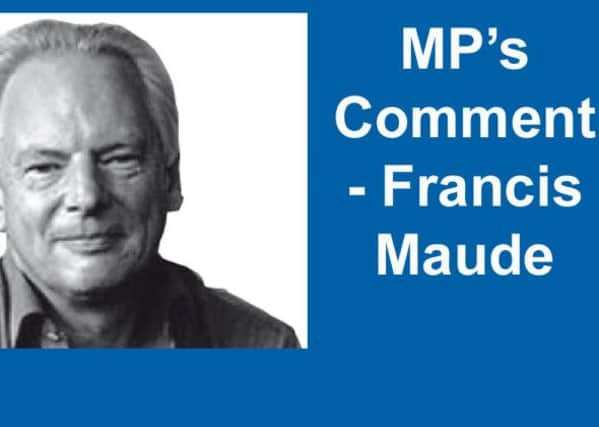Francis Maude: Efficient and effective government


It was an opportunity to reflect both on what we have achieved and on what remains to be done. Because the key task facing this Government and the Government after next May is to tackle the budget deficit. We forget now that in 2010 it was the biggest in the developed world. And we needed to cut our costs, like any business that finds itself under pressure.
Far too often government was paying different prices for the same product. For example we found parts of the government were paying seven and a half times more for standard printer cartridges than others. Just a waste of money.
Advertisement
Hide AdAdvertisement
Hide AdImmediately we started renegotiating contracts with our biggest suppliers – dealing with them as a single customer as the government should always have done.
We slashed spending on consultancy – it’s down by more than half, and made massive savings from advertising and marketing.
We’ve cut the size of the Civil Service - down 17 per cent so far, with more to come.
And we’ve cut the cost of government’s property - getting out of properties that weren’t needed.
Advertisement
Hide AdAdvertisement
Hide AdWe’ve released two million square metres already: equivalent to 26 Buckingham Palaces.
This is all about efficient and effective government, government that cares about public services and cares about the taxpayer. And it delivers.
Savings - real folding money savings, compared with 2009-2010. In our first ten months unprecedented savings of £3.75 billion - enough to pay 200,000 junior nurses.
In 2011-12 a further £5.5billion. Or the cost of around 1.6 million primary school places. The next year £10 billion - that’s £600 for every working household.
Advertisement
Hide AdAdvertisement
Hide AdAnd last year £14.3 billion – that pays for half a million nurses.
Reform - we also needed real reform, as well as cutting costs. A marvellous doctor from Inclusion Healthcare in Leicester spoke to the conference. Leading a GP practice serving homeless people, she talked about the journey they took to leave the NHS to form an employee-owned social enterprise. Hers is just one of more than 100 public service mutuals, spun out of the public sector and delivering public services liberated from the bureaucratic straitjacket.
So far more than 35,000 public servants have made this journey.
But many more would like to. Entrepreneurial leadership, hard-headed business discipline, freedom to innovate, relentless focus on the needs of the citizen, staff who are real owners of the enterprise – these new public service mutuals are the way of the future.
So a lot achieved but much more to do.